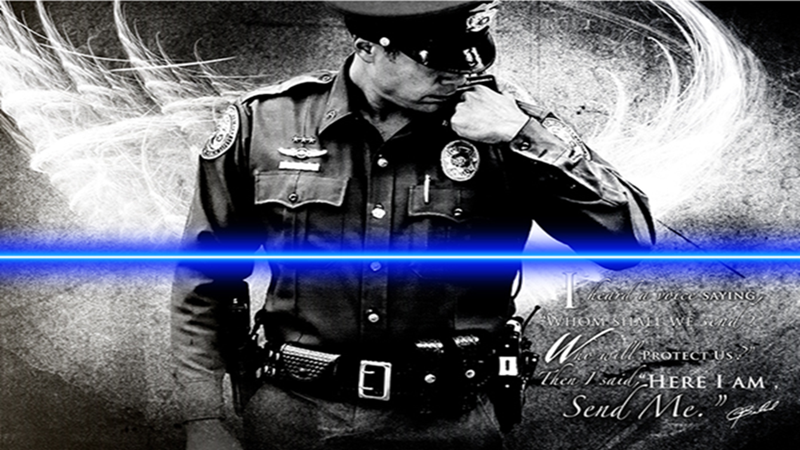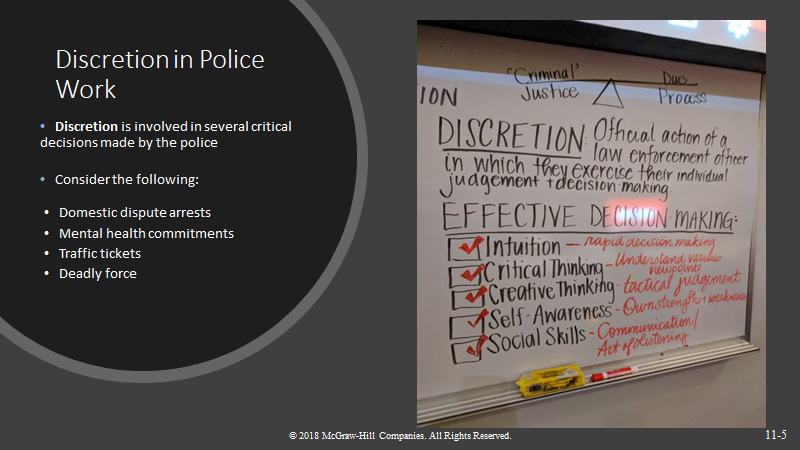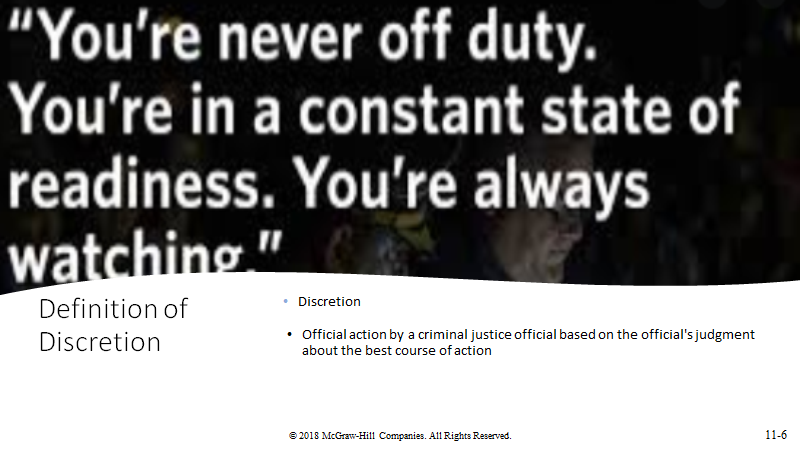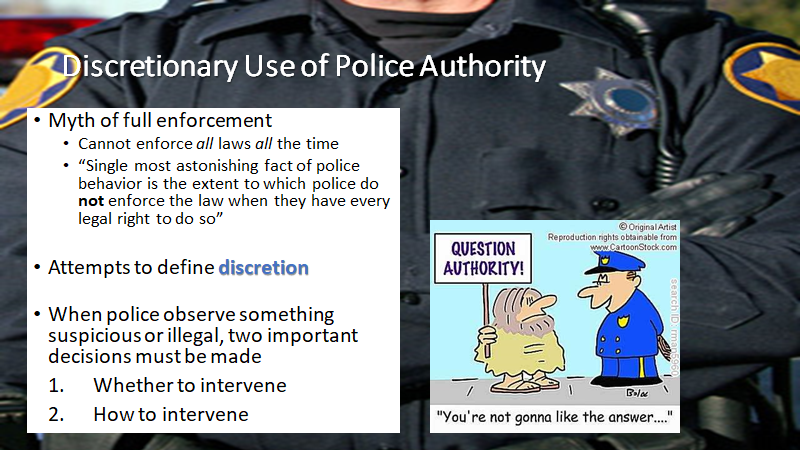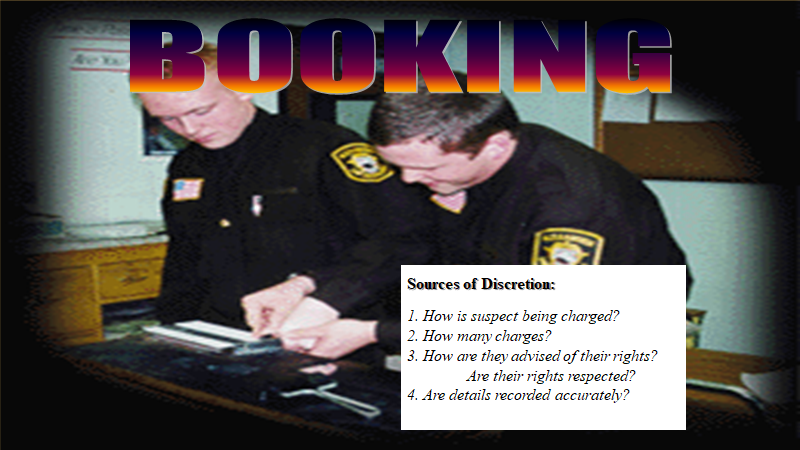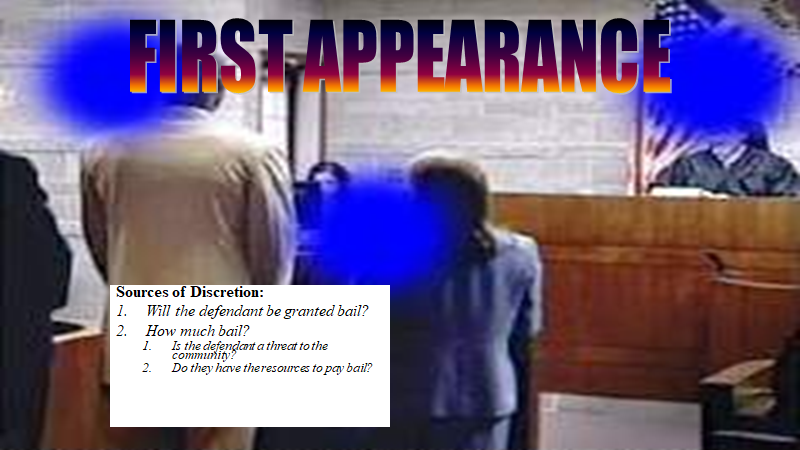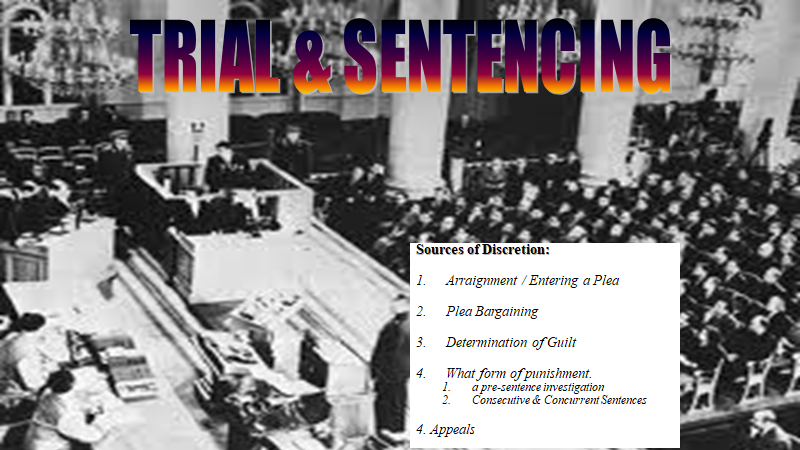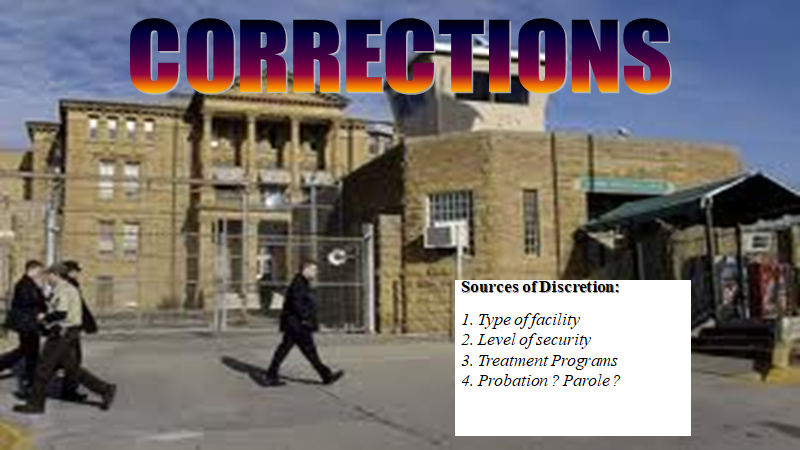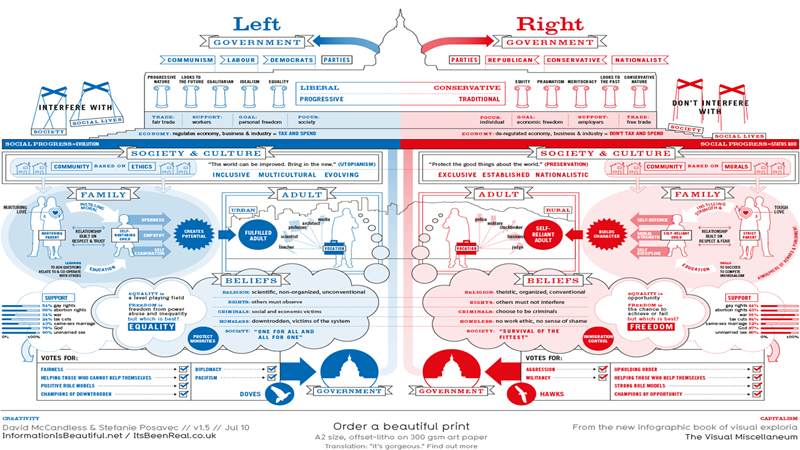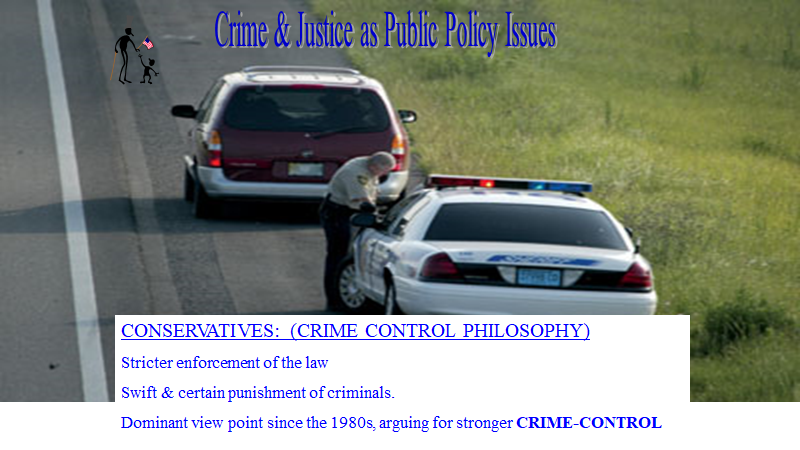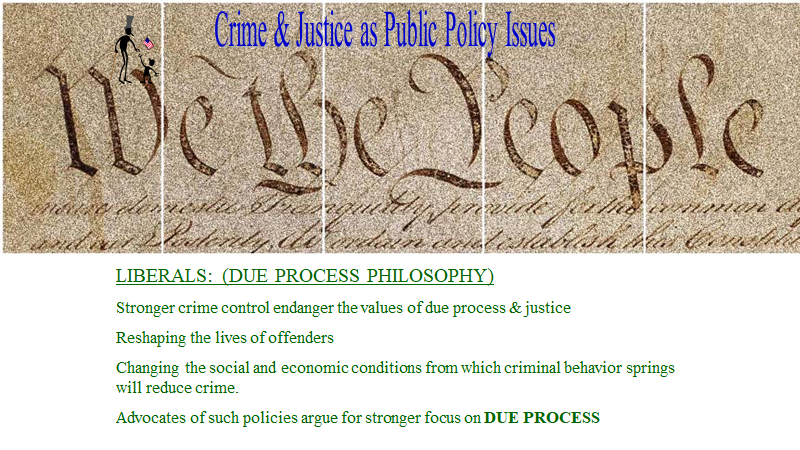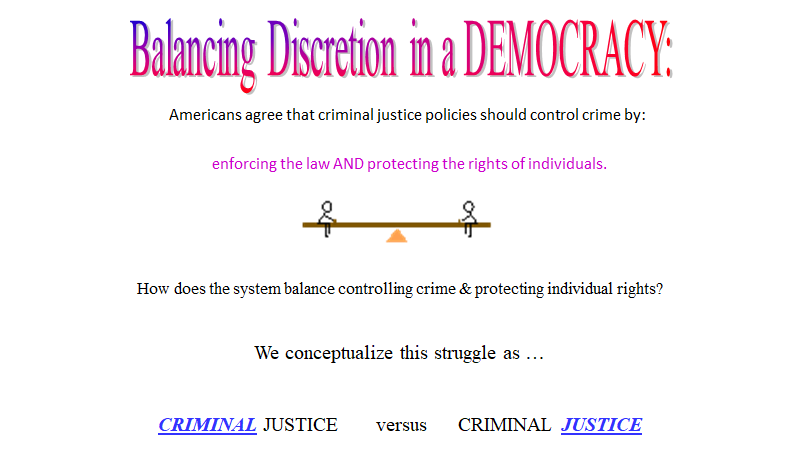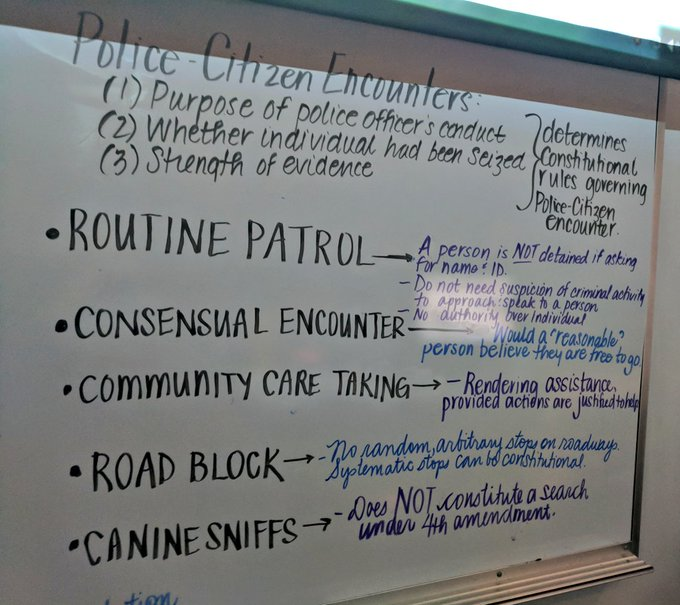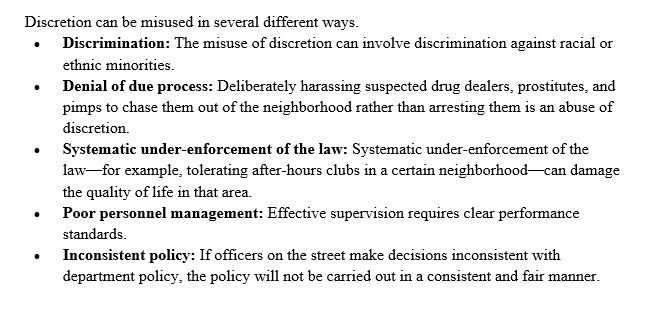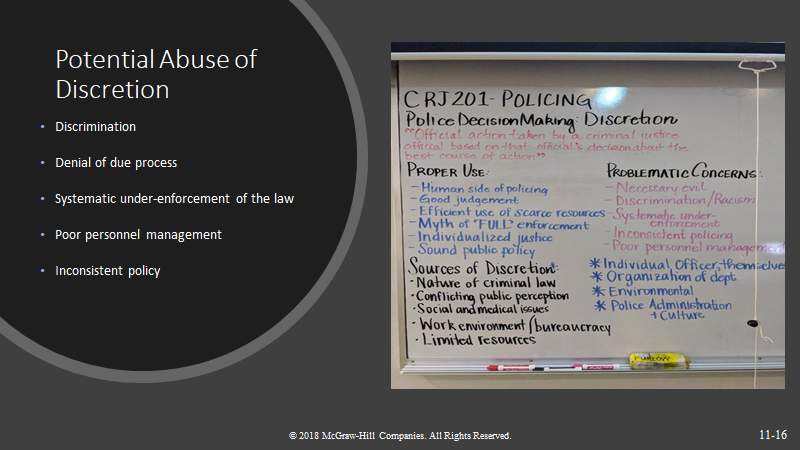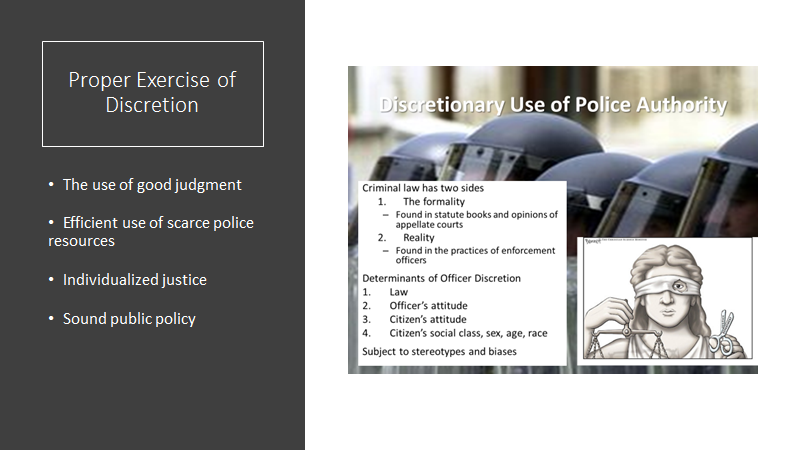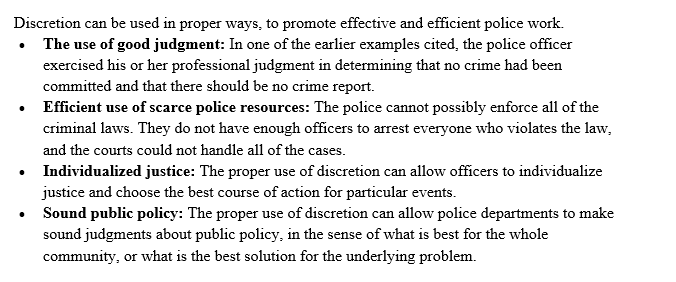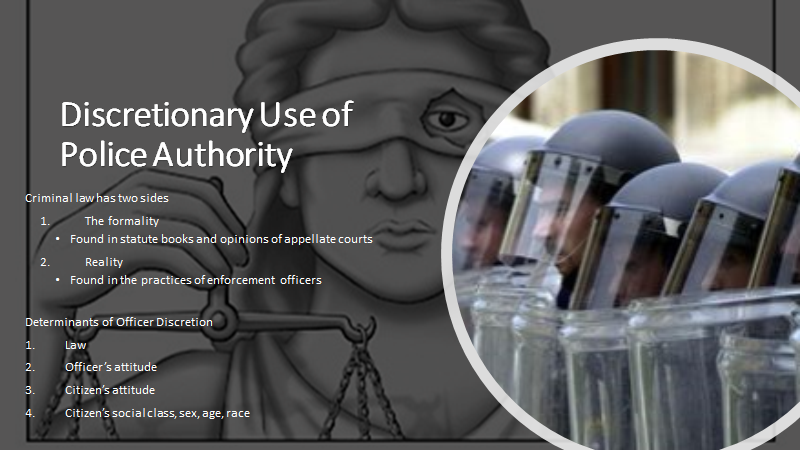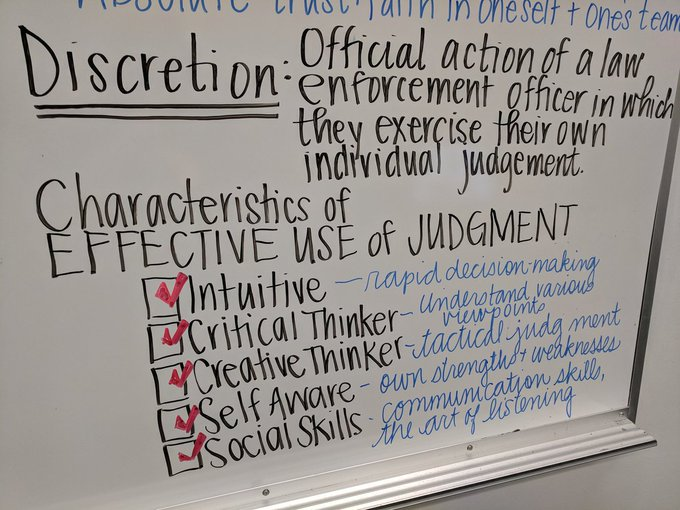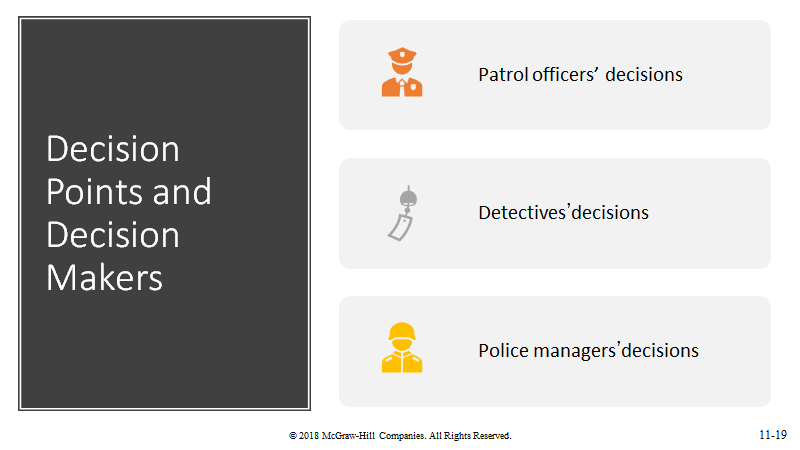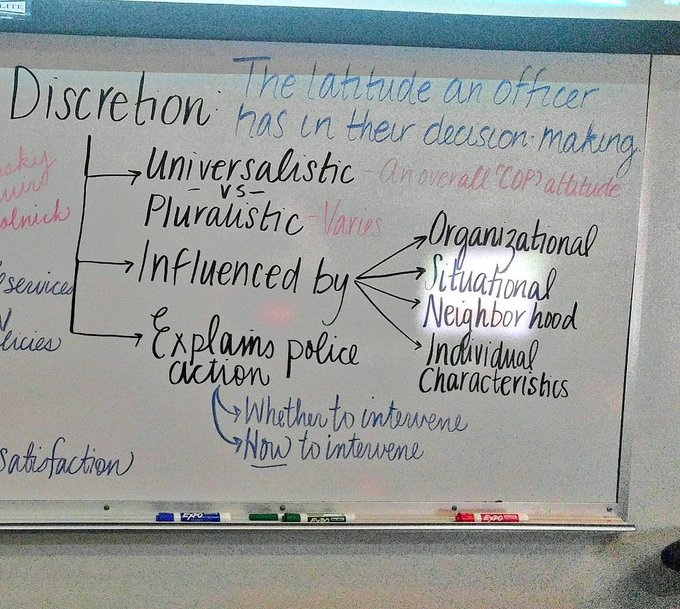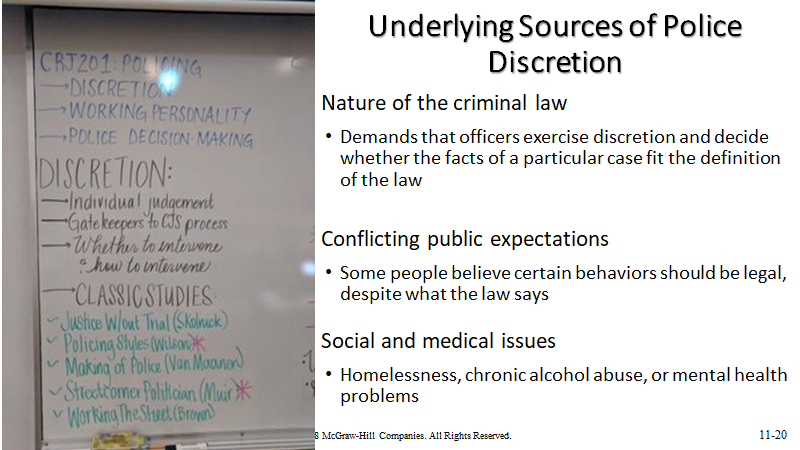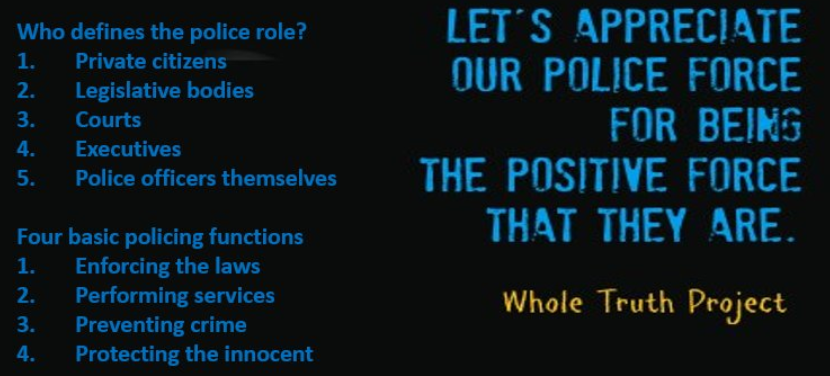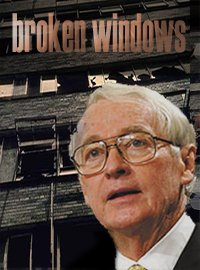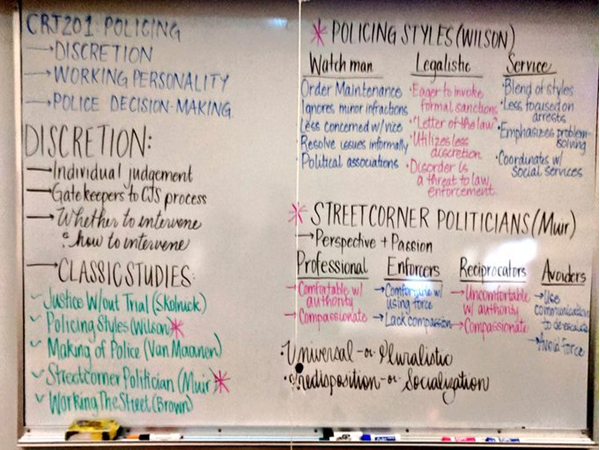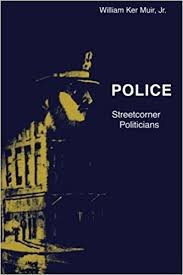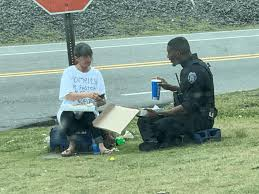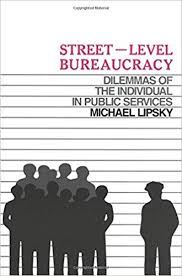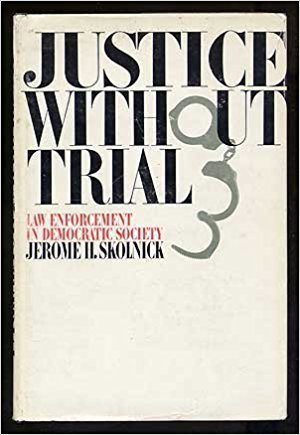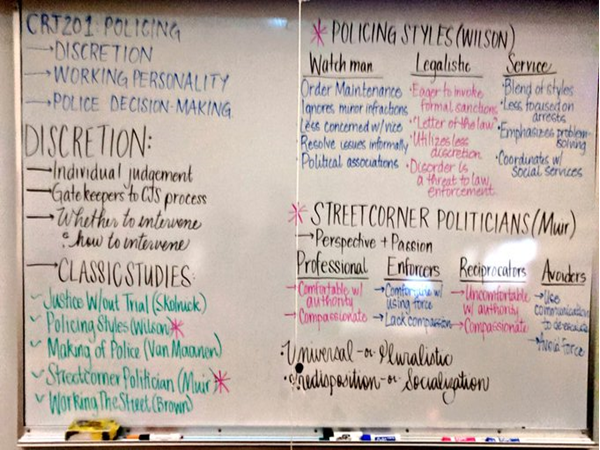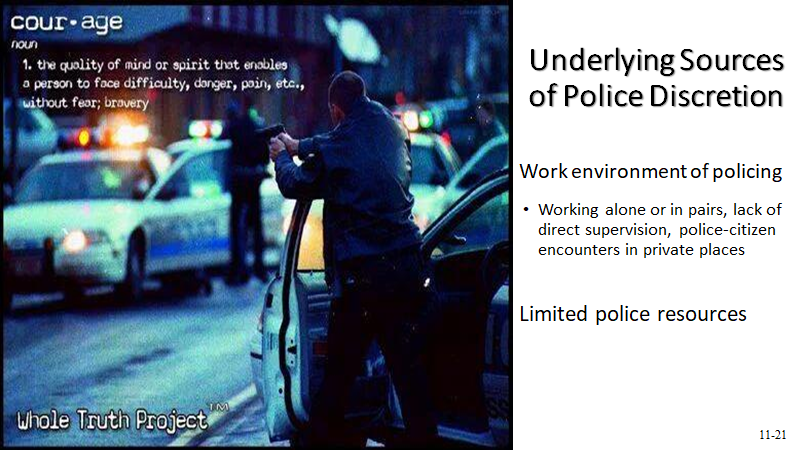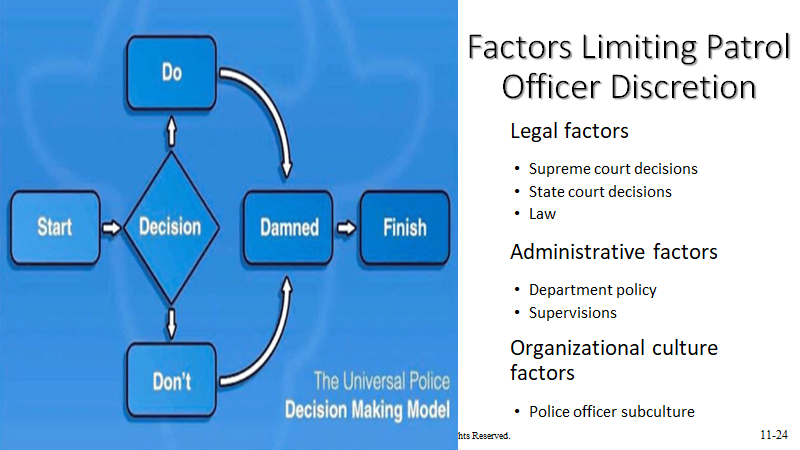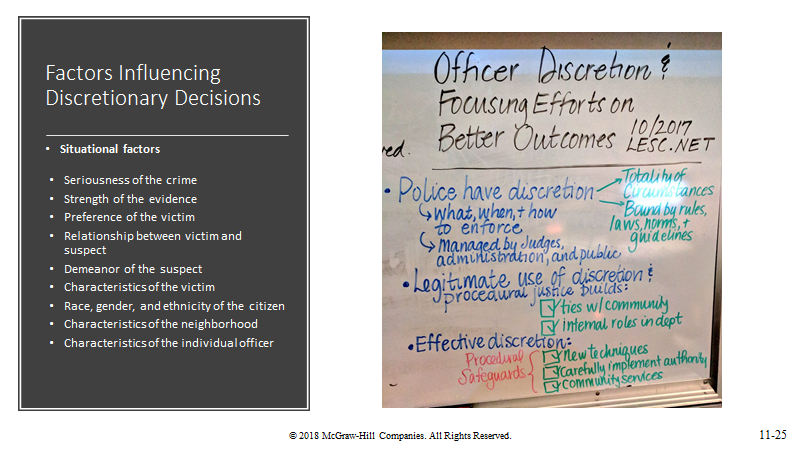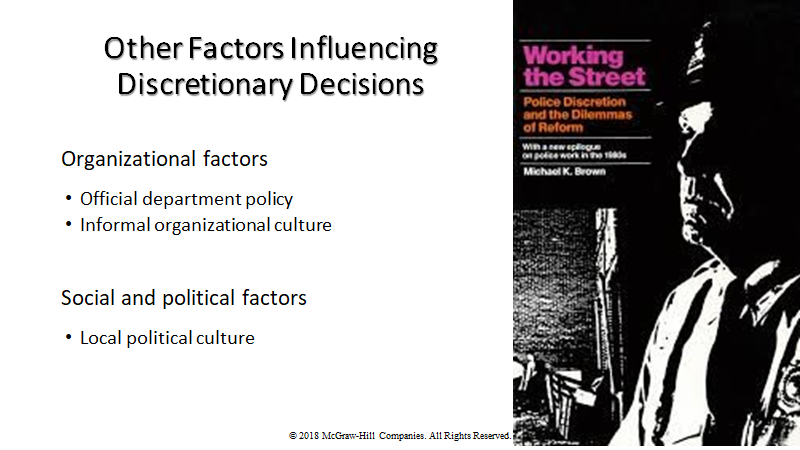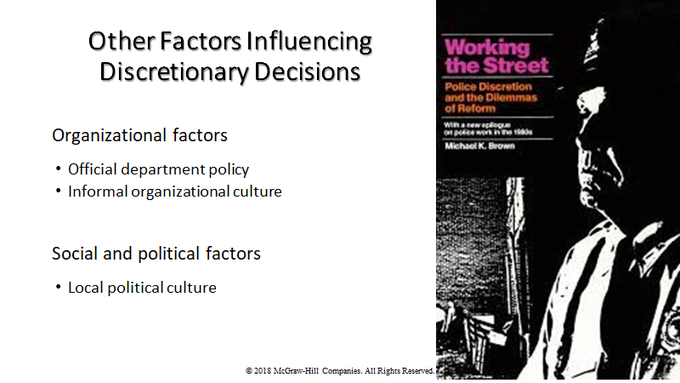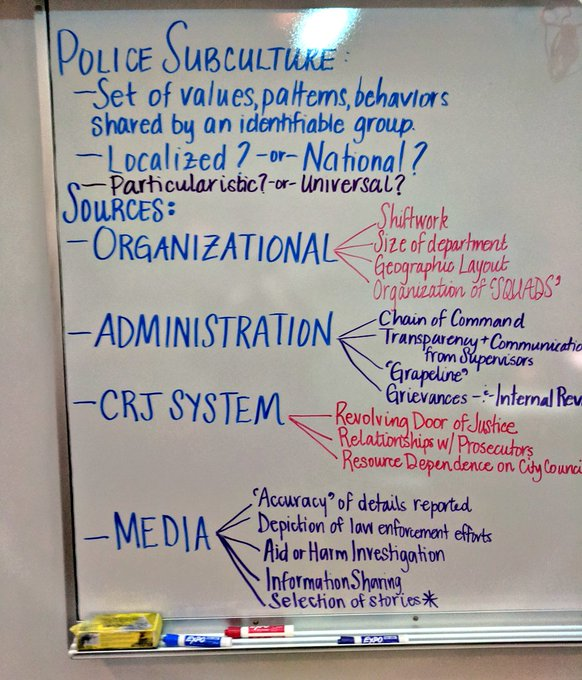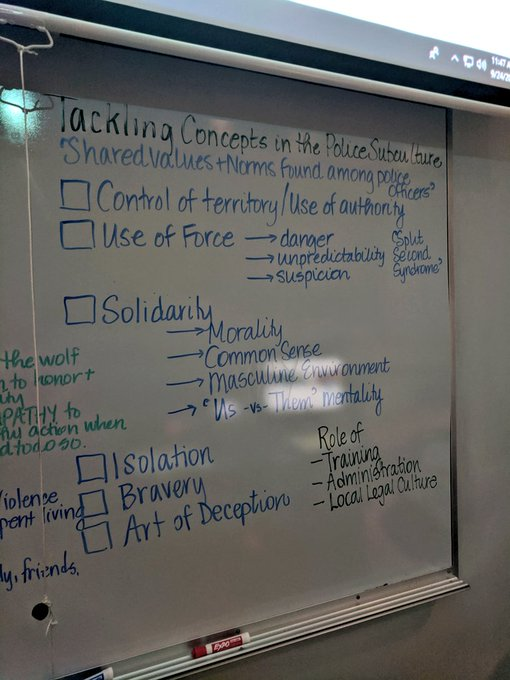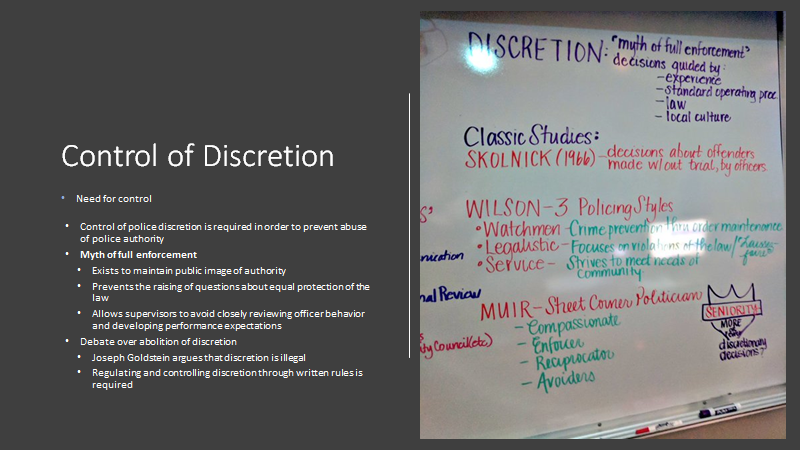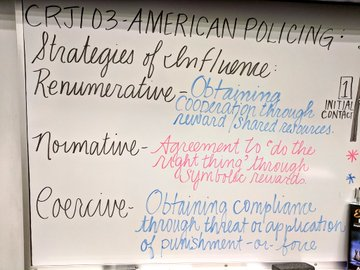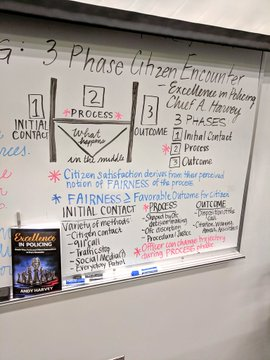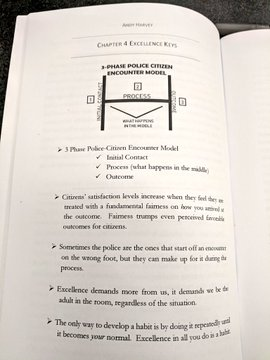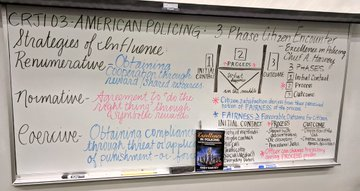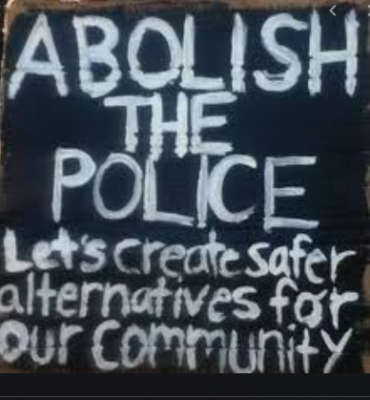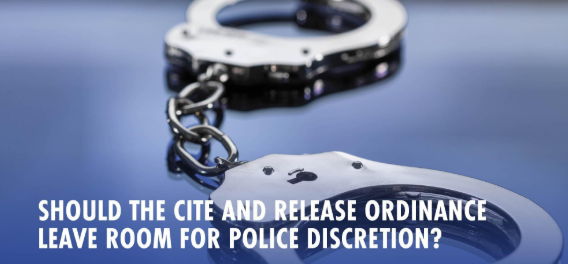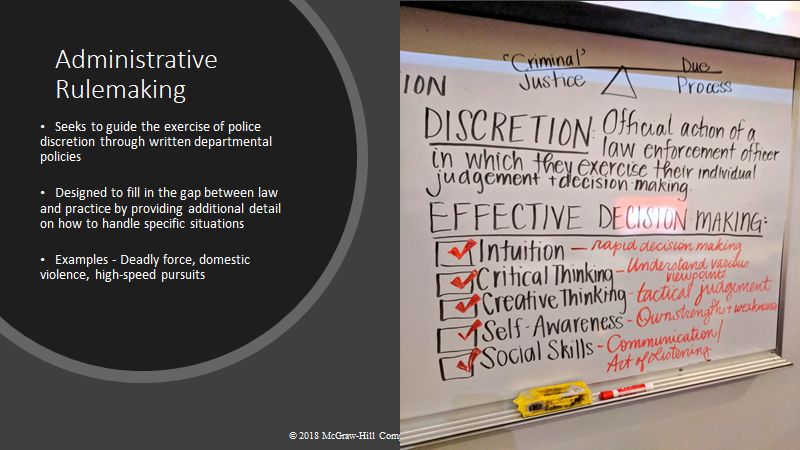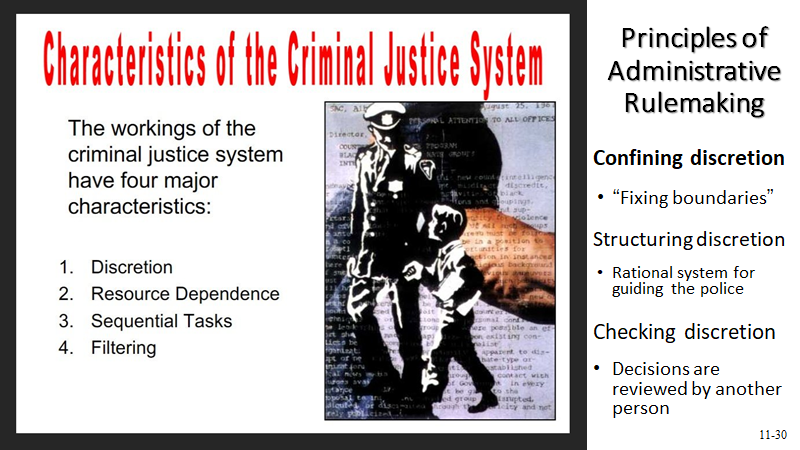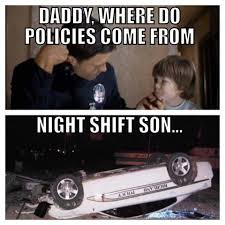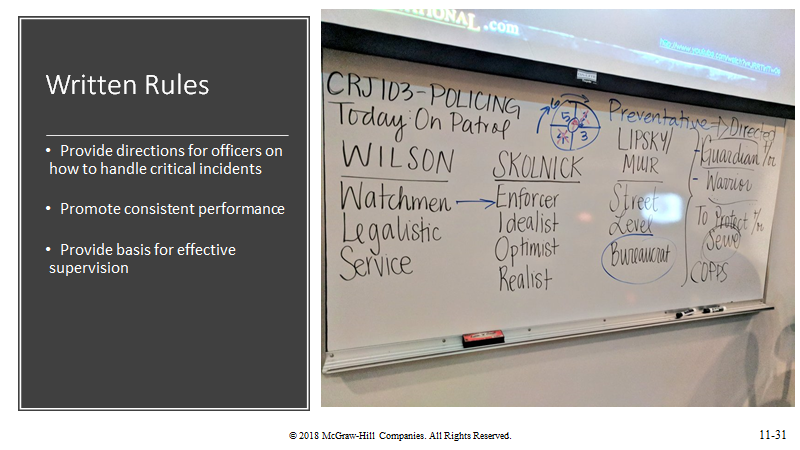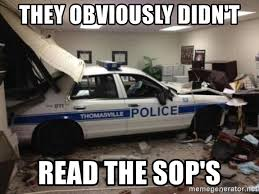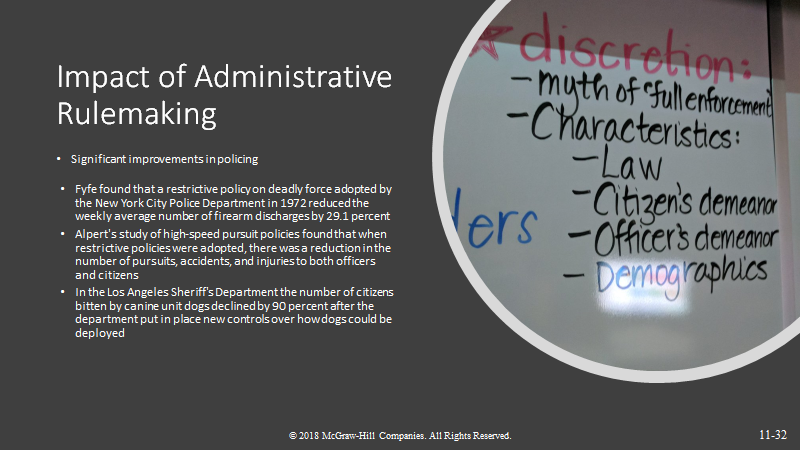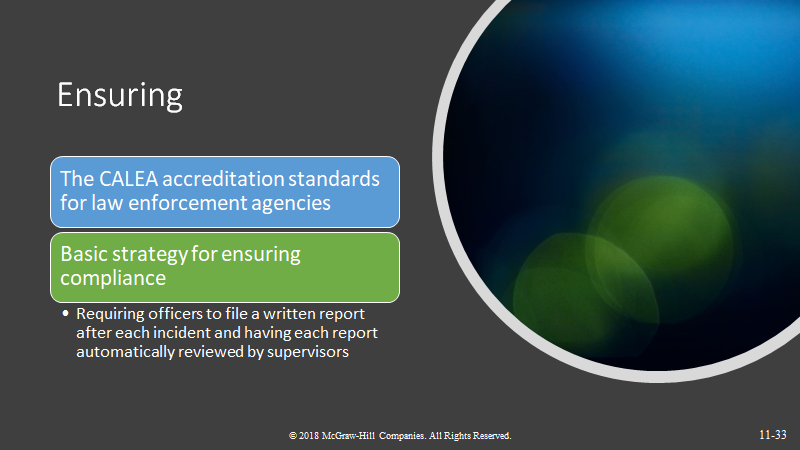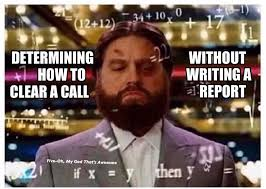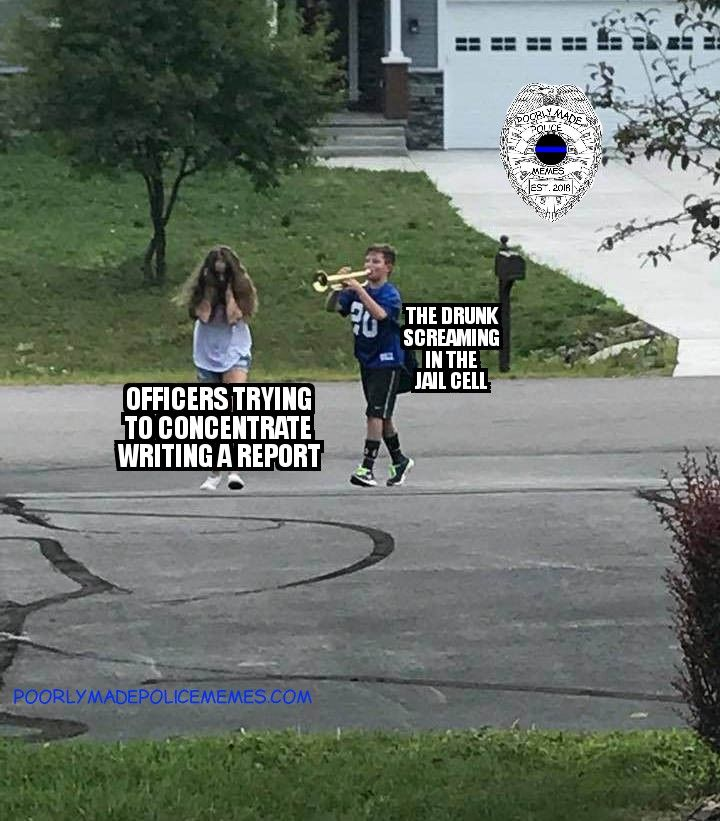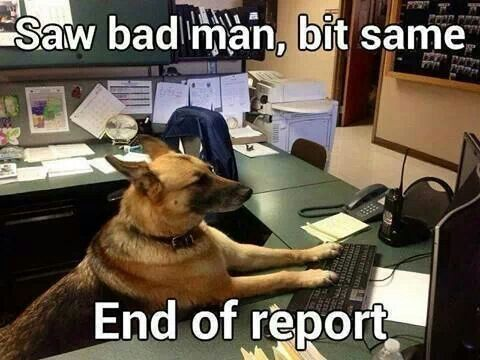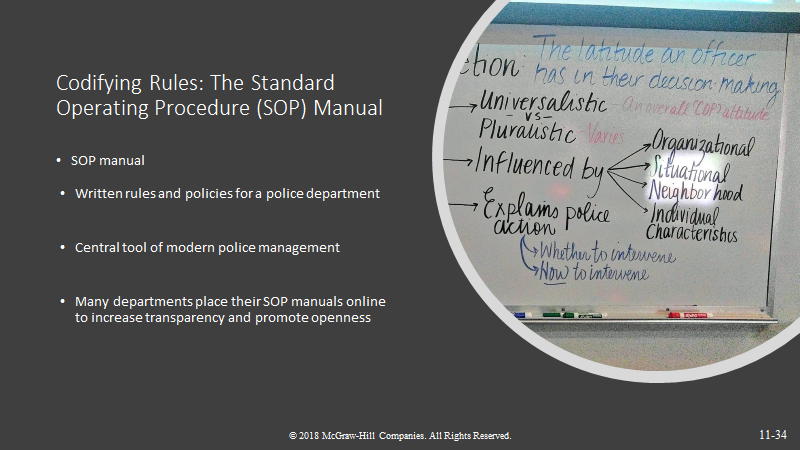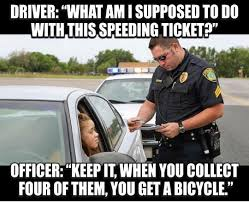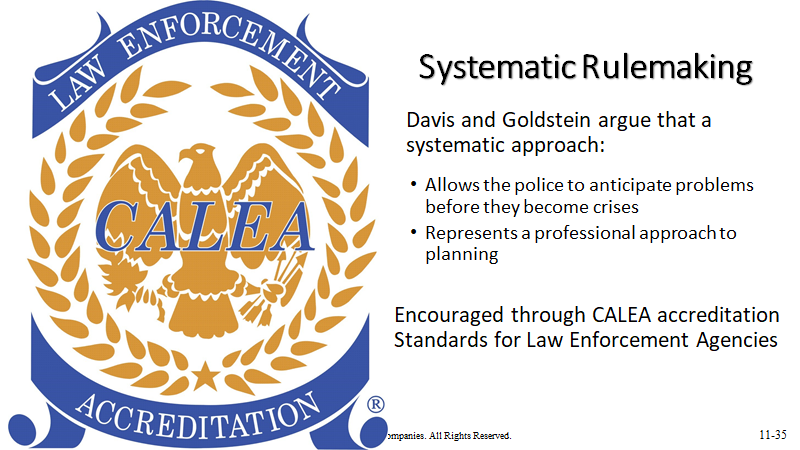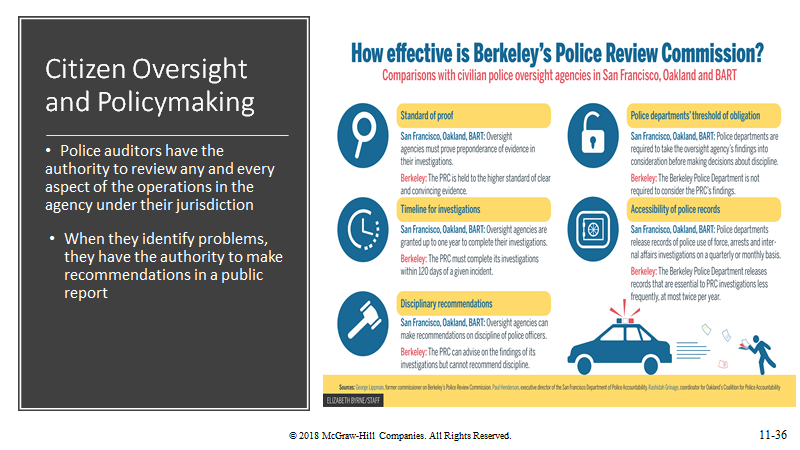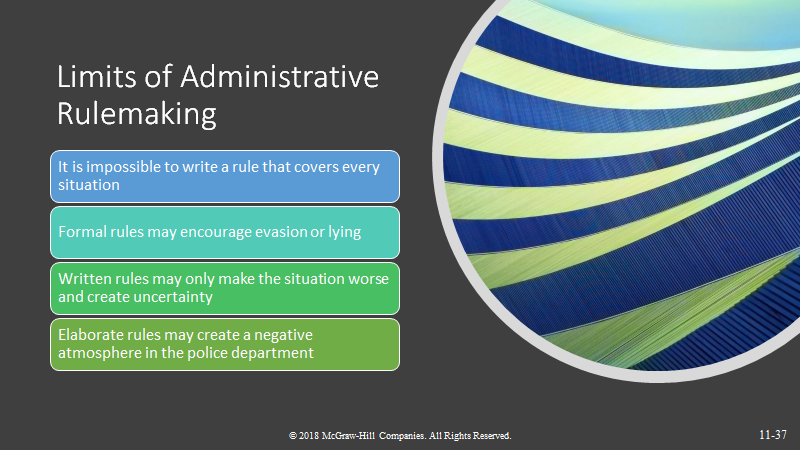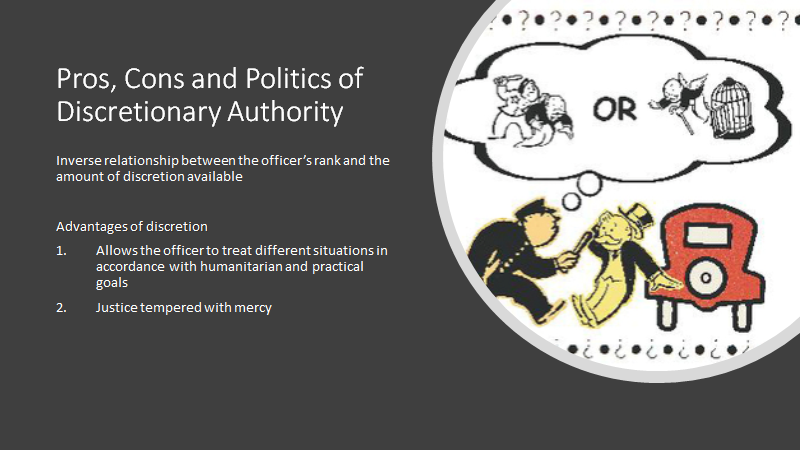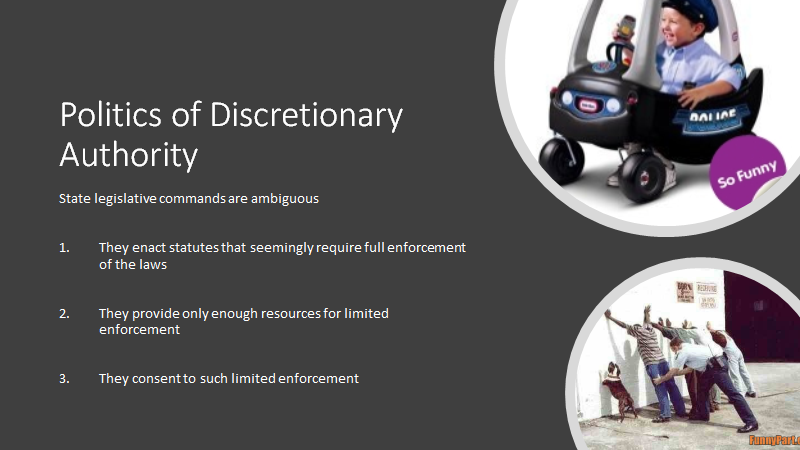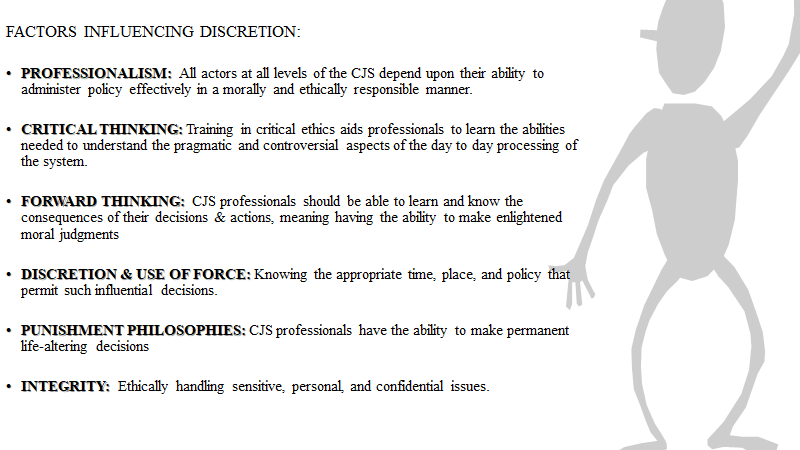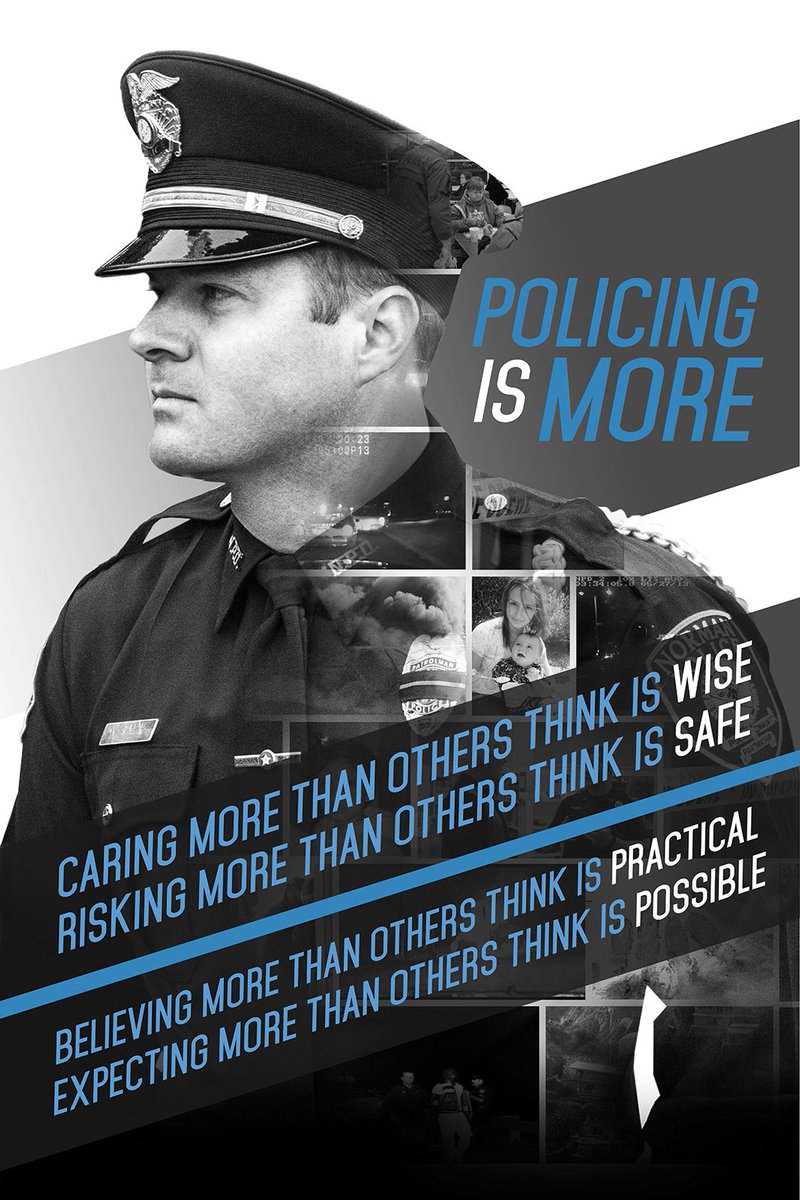Hello! Today we are going to be taking an in-depth look at #police #discretion. We have touched on this topic throughout the semester, but now really getting into the specifics of police decision-making. I look forward to your thoughts!
#CRJ201 #discretion #MoraineValley
#CRJ201 #discretion #MoraineValley
Officers routinely decide not to arrest people who are obviously breaking the law. Other examples of discretion include the following:
•Domestic dispute arrests
•Mental health commitments
•Traffic enforcement
•Deadly force
#CRJ201 #Discretion #MoraineValley
•Domestic dispute arrests
•Mental health commitments
•Traffic enforcement
•Deadly force
#CRJ201 #Discretion #MoraineValley
Police officers decide to arrest or not arrest. An arrest is dismissed at the police station because the sergeant thinks there is insufficient evidence.
#CRJ201 #Discretion #MoraineValley
#CRJ201 #Discretion #MoraineValley
A judge sets a very high bail of $100,000 that the defendant cannot raise. Another judge excludes evidence because of an unconstitutional search and seizure.
#CRJ201 #Discretion #MoraineValley
#CRJ201 #Discretion #MoraineValley
One judge sentences someone convicted of assault to probation and another person to prison for essentially the same crime.
#CRJ201 #Discretion #MoraineValley
#CRJ201 #Discretion #MoraineValley
The parole board decides to release one inmate on parole, but not another inmate with roughly the same criminal history.
#CRJ201 #Discretion #MoraineValley
#CRJ201 #Discretion #MoraineValley
Finally, a judge sentences some people convicted of first-degree murder to the death penalty while sentencing others convicted of the same offense to life imprisonment.
#CRJ201 #Discretion #MoraineValley
#CRJ201 #Discretion #MoraineValley
Another important development related to police discretion is the growth of a richer understanding of the complexity of police–citizen encounters.
#CRJ201 #Discretion #MoraineValley
#CRJ201 #Discretion #MoraineValley
Discretion can be used in proper ways, to promote effective and efficient police work.
#CRJ201 #Discretion #MoraineValley
#CRJ201 #Discretion #MoraineValley
Police discretion is not limited to patrol officers, and not only to the decision to arrest or not arrest. Officers at different ranks make discretionary decisions covering a wide range of actions.
#CRJ201 #Discretion #MoraineValley
#CRJ201 #Discretion #MoraineValley
The broad scope of the criminal law in the United States creates significant problems for the police, which they deal with through the exercise of their discretion.
#CRJ201 #Discretion #MoraineValley
#CRJ201 #Discretion #MoraineValley
One of the main reasons why the criminal law in the United States covers so many different kinds of behavior is that the American people have conflicting public expectations about what behavior should be illegal
#CRJ201 #Discretion #MoraineValley
#CRJ201 #Discretion #MoraineValley
James Q. Wilson comments that, in policing, “discretion increases as one moves down the organizational hierarchy.”
#CRJ201 #Discretion #MoraineValley
#CRJ201 #Discretion #MoraineValley
Patrol officers have been described as street-level bureaucrats. They make the decisions that produce actual police policy that people receive.
#CRJ201 #Discretion #MoraineValley
#CRJ201 #Discretion #MoraineValley
Jerome Skolnick observed years ago that “police work constitutes the most secluded part of an already secluded system of criminal justice and therefore offers the greatest opportunity for arbitrary behavior.”
#CRJ201 #Discretion #MoraineValley
#CRJ201 #Discretion #MoraineValley
Patrol officers cannot possibly handle every situation that comes up, and they have to exercise their discretion about how to use their time.
#CRJ201 #Discretion #MoraineValley
#CRJ201 #Discretion #MoraineValley
A patrol officer’s discretion is limited and controlled by a number of different factors.
#CRJ201 #Discretion #MoraineValley
#CRJ201 #Discretion #MoraineValley
Police discretion is influenced by the circumstances of each situation. Studies of the decision to arrest, for example, have found that it is affected by several situational factors.
#CRJ201 #Discretion #MoraineValley
#CRJ201 #Discretion #MoraineValley
Official department policies have a powerful influence over police discretion. Police departments also have their own informal organizational culture that influences officer discretion.
#CRJ201 #Discretion #MoraineValley
#CRJ201 #Discretion #MoraineValley
Police officer discretion is also influenced by the local political culture. Local political culture influences police departments informally and not necessarily through written policy.
#CRJ201 #Discretion #MoraineValley
#CRJ201 #Discretion #MoraineValley
Virtually all experts agree on the need to control police discretion in order to prevent abuse of police authority.
The so-called myth of full enforcement and denial of discretion existed for several reasons.
#CRJ201 #Discretion #MoraineValley
The so-called myth of full enforcement and denial of discretion existed for several reasons.
#CRJ201 #Discretion #MoraineValley
Gaining compliance, cooperation and @ChiefAHarvey 3 Phase Citizen Encounter model #ExcellenceInPolicing
#CRJ201 #Discretion #MoraineValley
#CRJ201 #Discretion #MoraineValley
The debate over abolishing police discretion parallels similar debates over how to control discretion in other parts of the criminal justice system: plea bargaining, sentencing, parole release, and so forth
#CRJ201 #Discretion #MoraineValley
#CRJ201 #Discretion #MoraineValley
There is now a general consensus that attempting to abolish discretion is both unwise in principle and impossible in practice.
#CRJ201 #Discretion #MoraineValley
#CRJ201 #Discretion #MoraineValley
The method of controlling discretion that has evolved is through the use of written policies that guide the police officer’s exercise of discretion. This approach is called administrative rulemaking.
#CRJ201 #Discretion #MoraineValley
#CRJ201 #Discretion #MoraineValley
Administrative rulemaking seeks to guide the exercise of police discretion through written departmental policies.
#CRJ201 #Discretion #MoraineValley
#CRJ201 #Discretion #MoraineValley
These policies typically specify (1) what an officer must do in certain situations, (2) what he or she may not do in those situations, and (3) what factors an officer should take into consideration in deciding on a course of action.
#CRJ201 #Discretion #MoraineValley
#CRJ201 #Discretion #MoraineValley
Written rules offer obvious advantages. They provide direction for officers on how to handle critical incidents. Written policies promote consistent performance throughout the department.
#CRJ201 #Discretion #MoraineValley
#CRJ201 #Discretion #MoraineValley
Having rules and making them public, moreover, eliminates the secrecy surrounding police activities and officer discretion. The basic argument in favor of administrative rule-making is that it is more effective than other means.
#CRJ201 #Discretion #MoraineValley
#CRJ201 #Discretion #MoraineValley
There is persuasive evidence that administrative rule-making has produced some significant improvements in policing.
#CRJ201 #Discretion #MoraineValley
#CRJ201 #Discretion #MoraineValley
Rules designed to control discretion are effective only if officers comply with them fully. The basic strategy is to require officers to file a written report after each incident, and to have each report automatically reviewed by supervisors.
#CRJ201 #Discretion #MoraineValley
#CRJ201 #Discretion #MoraineValley
Written rules and policies are collected and codified in a department’s standard operating procedure manual.
#CRJ201 #Discretion #MoraineValley
#CRJ201 #Discretion #MoraineValley
The President’s Task Force on 21st Century Policing Action Item 14.1 recommended that departments make their policy manuals publicly available as a way of building community trust and confidence in the police.
#CRJ201 #Discretion #MoraineValley
#CRJ201 #Discretion #MoraineValley
Leading experts on police discretion have urged the police to engage in systematic rule-making.
#CRJ201 #Discretion #MoraineValley
#CRJ201 #Discretion #MoraineValley
Some citizen oversight agencies also contribute to rule-making through a process known as policy review. Police auditors have the authority to review any and every aspect of the operations in the agency under their jurisdiction.
#CRJ201 #Discretion #MoraineValley
#CRJ201 #Discretion #MoraineValley
Police organizations have been characterized as punishment-centered bureaucracies, with many rules that tell officers what not to do and few rewards for positive police work.
#CRJ201 #Discretion #MoraineValley
#CRJ201 #Discretion #MoraineValley
A necessary evil or a necessary tool? Discretion reiterates the need for the modern police officer to be a problem solver and a THINKING officer
#CRJ201 #Discretion #MoraineValley
#CRJ201 #Discretion #MoraineValley
We will be back on Wednesday, noon, CST, to discuss police legitimacy, how our officers of the future are positive agents of change. I welcome ALL feedback on today& #39;s discussion. See you then!
#CRJ201 #Discretion #MoraineValley
#CRJ201 #Discretion #MoraineValley

 Read on Twitter
Read on Twitter